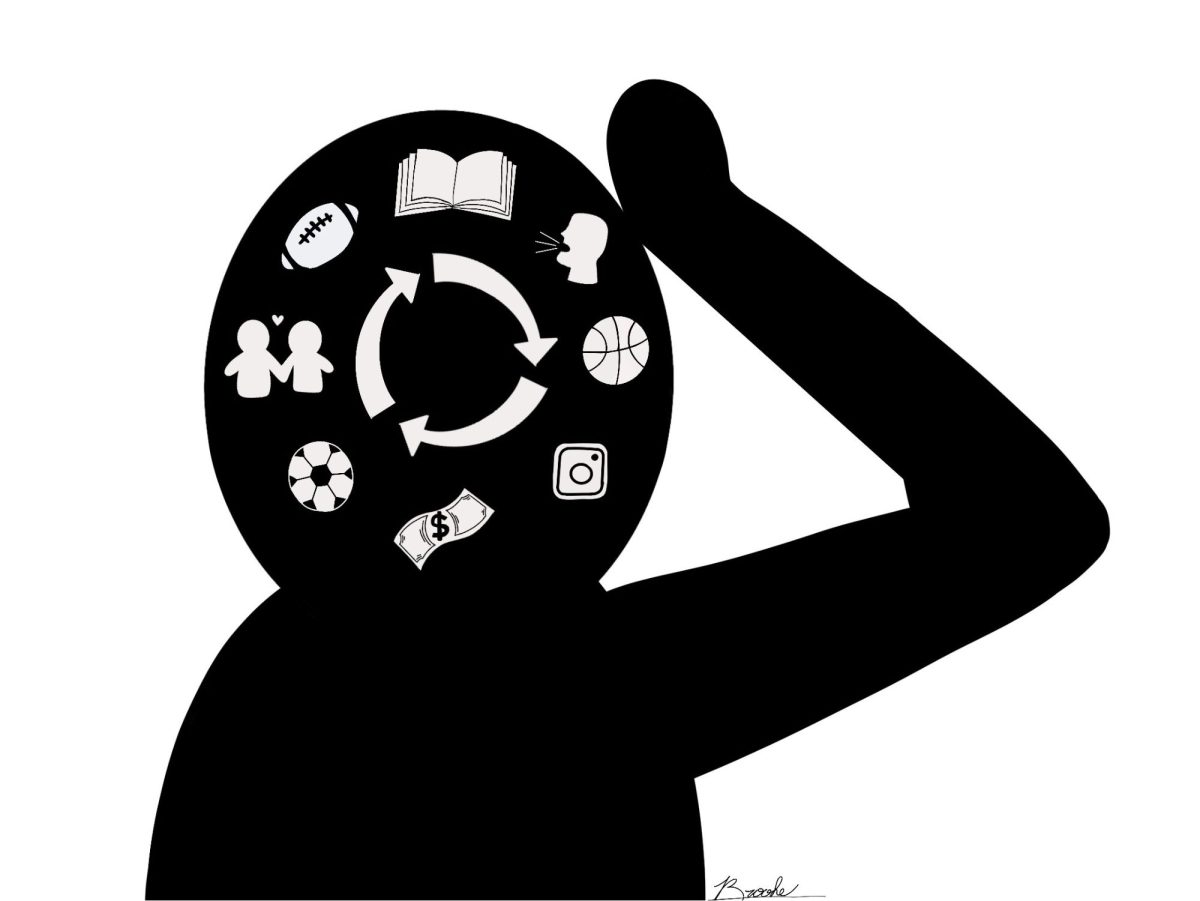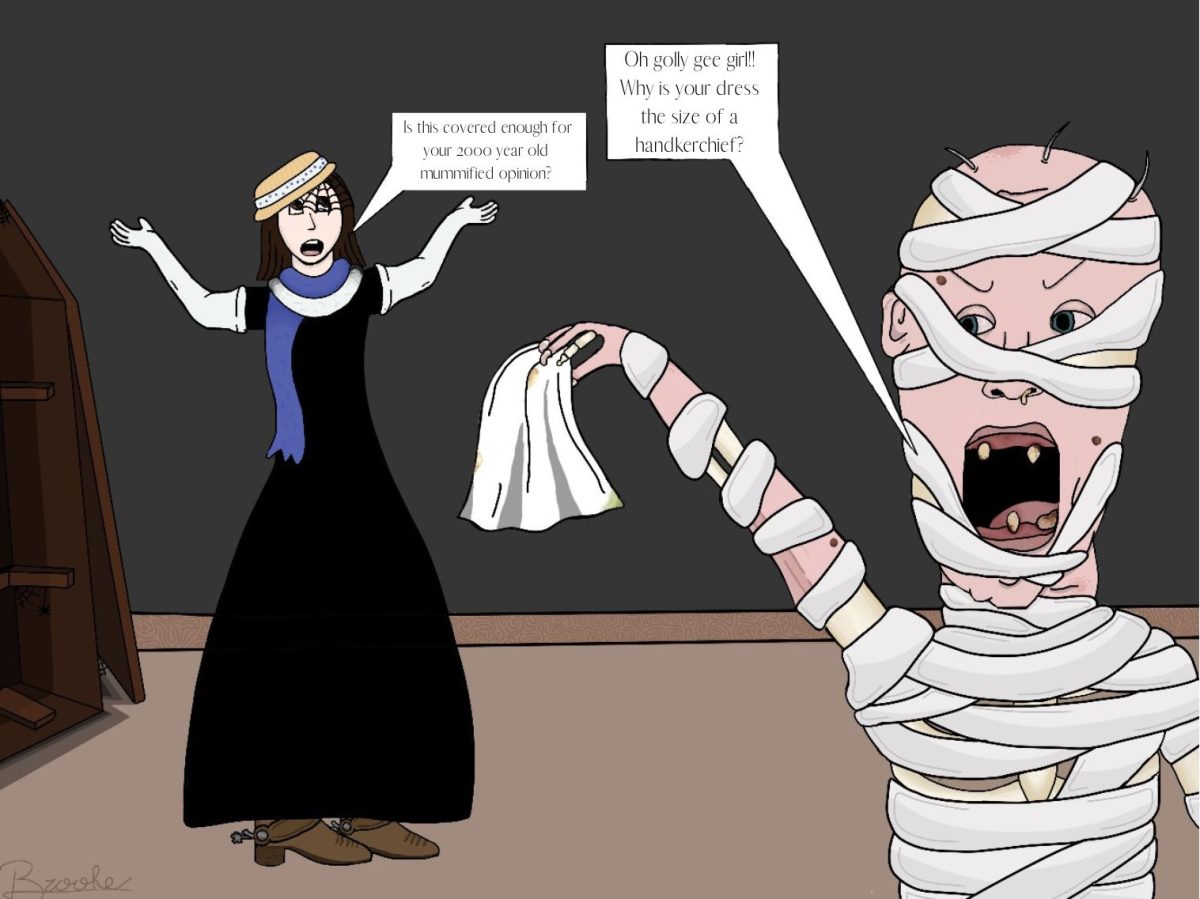It’s that time of year again; fourth-grade teachers are queuing up the BrainPOP video about Martin Luther King Jr., corporations that own slave mining operations in the Congo are tweeting about how they’re celebrating #BlackHistoryMonth, and people have started holding the door for me a bit more often. This short, cold month is supposed to be one of celebration and appreciation of the black leaders who fought to make sure our history doesn’t get scrubbed from the story of this country. But while we are encouraged to remember those who came before us, the new White House administration is putting all its efforts in ensuring people forget.
The Department of Defense, led by former Fox News anchor Pete Hegseth, issued a release stating that the department would no longer celebrate any “identity months.” Announced a day before Black History Month began, the release also targets other historically oppressed group’s celebrations like Women’s History Month and AAPI Heritage Month. While terrible, this refusal to acknowledge those months was simply an appetizer in this new administration’s multi-course meal in minority oppression.
In his sweeping collection of executive orders, President Donald Trump signed multiple directives to dismantle “Diversity, Equity, and Inclusion” (DEI) programs in the federal government, and encourage private-sector businesses to follow suit. These directives claim to promote a merit-based system, but a true meritocracy assumes that everyone starts from the same point—that’s never been the case in the United States. Generational wealth determines who has access to opportunity, redlining still shapes racial disparities in homeownership, and systemic barriers keep marginalized groups from accessing the same resources as their white counterparts. If anything, these actions are the opposite of fair. They uphold a tilted system based on inequality, a system programs like DEI attempted to address.
This is not just another round of conservatives complaining about wokeness; this is the structural disassembly of civil rights advancements, with Black history as collateral damage. And it’s not just within the federal government: schools, libraries, and institutions across the country are being forced to censor history at the behest of these far-right politicians. Last year, the Florida Department of Education approved new standards that required teachers to teach that enslaved people benefited from their enslavement. Republican governors and state legislators are banning books about Ruby Bridges, Frederick Douglass, and Rosa Parks. The goal is to strip all Americans of historical references that might remind us about the centuries of slavery and legalized discrimination committed against African Americans in this country.
This is where we are. A Black History Month where government institutions are not just ignoring Black history, but actively working to erase it. I see that erasure happening in real time. In my AP African American Studies class, we look at all aspects of Black history, even its most gruesome moments. We analyze first-hand accounts of people who lived through the brutal realities of slavery, Reconstruction, and Jim Crow. We examine photos of lynchings, of Black bodies burned and beaten, of children integrating schools under the protection of armed guards. We study the words of the enslaved, the activists, and the politicians who shaped this country’s obsession with race. And as I take in these histories, I can’t help but wonder how long it will be before this class is banned outright. As president of my school’s Black Student Union, I have to ask myself if simply creating a space for Black students will eventually be deemed “too political.” If politicians can claim that an AP class is pushing an agenda, how long before a club dedicated to supporting Black students is treated the same way? The line between “too woke” and simply existing as a Black person in America keeps getting thinner.
But this fight isn’t just about Black students. The same forces trying to erase Black history are the ones making it harder for all young people to learn about systemic inequality and the uncomfortable truths that shape our present. White students are being denied an honest education that would allow them to fully grasp the reality of the country they’ve inherited. Asian American students won’t learn about the Chinese Exclusion Act or the internment of Japanese Americans if these erasures continue. Indigenous history, already reduced to a footnote in most curriculums, will fade even further from classrooms. When politicians sanitize slavery, ban books, or strip DEI programs, they are deciding whose stories deserve to be remembered and whose identities can be ignored.
So what am I supposed to do this Black History Month? Rewatch Malcolm X and pretend his assassination wasn’t a warning? Work on another project for AP African American Studies, knowing that the course is one executive order or Supreme Court decision away from being wiped from existence? Or sit quietly while textbooks are rewritten, libraries are emptied, and politicians decide which parts of my history are worth remembering?
Because if they are willing to erase our history, they are willing to erase us, but it doesn’t have to be this way. Stay informed, challenge revisionist narratives, and hold politicians accountable for the education they seek to control. Pay attention to what’s being removed from your schools, your libraries, and your communities, because history is only as strong as the people who fight to preserve it. Most importantly, approach this struggle with empathy. Fight not just for your own story, but for the stories of others, because defending the truth isn’t just about protecting Black history; it’s about ensuring that no one’s history is erased.









!["I will be attending Trunk or Treat [for FCCLA]" junior Crystal Li said. "We're gonna use Mr. Harbeson's car, and we will be [hosting three different activities]."](https://southwestshadow.com/wp-content/uploads/2025/10/IMG_0980-1200x900.png)










